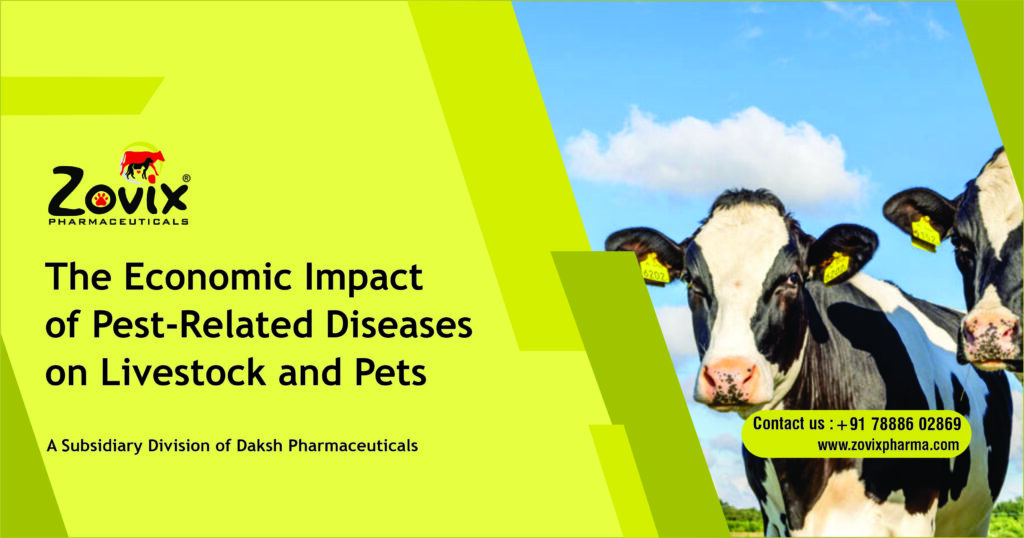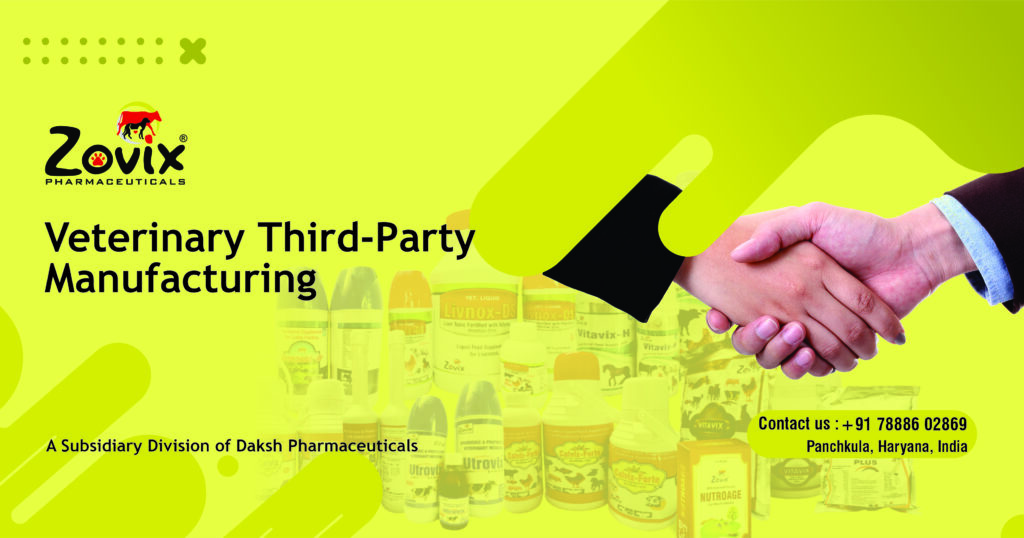The Economic Impact of Pest-Related Diseases on Livestock and Pets
Pest-related diseases can cause significant financial strain on livestock and pet owners, leading to both direct and indirect economic losses. These impacts can be far-reaching, affecting farm profitability, the livelihoods of farmers, and the health and well-being of pets. Below is an overview of how these diseases economically impact the livestock and pet industries:
1. Direct Economic Losses
- Decline in Productivity:
- Livestock: Pests like ticks, fleas, mites, and lice can significantly reduce livestock productivity. Infested animals may yield less milk, meat, or wool and may exhibit slower growth due to stress, blood loss, and decreased efficiency in converting feed to energy.
- Pets: For pets, the economic burden primarily arises from reduced quality of life, which can lead to costly veterinary treatments and overall diminished well-being.
- Increased Veterinary Expenses:
- Disease Treatment: Pests act as carriers for various diseases such as Lyme disease, babesiosis, and mange. Treating these conditions often requires multiple veterinary visits, medications, and sometimes even hospitalization, all of which can accumulate substantial costs.
- Preventive Measures: To prevent pest-related diseases, livestock and pet owners frequently invest in preventive treatments like vaccines, insecticides, and regular health check-ups, representing an ongoing financial commitment.
- Animal Losses:
- Severe pest infestations or diseases can result in the death of livestock, leading to the direct loss of valuable animals. In extreme cases, entire herds or flocks may be impacted, causing significant financial setbacks.
2. Indirect Economic Losses
- Decreased Market Value:
- Lower Quality Products: Animals affected by pest-related diseases often produce lower-quality products, such as damaged hides, inferior wool, or lower-grade meat, which may sell for reduced prices in the market.
- Reduced Breeding Value: Infested or diseased animals may have diminished reproductive success, and their offspring may be weaker, reducing the overall value of the herd or flock.
- Increased Operational Expenses:
- Additional Feed Costs: Infested animals may need more feed to maintain their health and body weight, driving up the cost of production.
- Labor Costs: Managing pest infestations typically requires additional labor, including regular inspections, the application of treatments, and special care for affected animals.
- Market Restrictions:
- Quarantine Measures: Severe outbreaks of pest-related diseases may lead to quarantine measures, restricting the movement of animals and animal products. This can result in loss of market access and significant financial challenges.
- Export Limitations: Countries with strict biosecurity measures might impose bans or restrictions on importing animals or animal products from areas affected by pest-related diseases, further limiting market opportunities.
3. Long-Term Economic Impact
- Decline in Herd/Flock Performance:
- Persistent pest problems can cause long-term deterioration in the health and productivity of herds or flocks. Over time, this can reduce the genetic potential and overall performance of livestock, negatively impacting future profitability.
- Reputation Damage:
- Farms known for pest-related issues may suffer from a damaged reputation, leading to a loss of customers and reduced demand for their products. This can have long-lasting effects on business viability.
- Investment in Control Measures:
- The need for ongoing investment in pest control measures, such as improved housing, biosecurity, and advanced treatments, represents a significant and continuous financial burden. Although necessary, these investments can be particularly challenging for small-scale farmers.
Conclusion
Pest-related diseases have a substantial economic impact on the livestock and pet industries. The direct costs of treatment and lost productivity, coupled with the indirect effects of reduced market value and increased operational expenses, can significantly undermine profitability. To minimize these economic losses and ensure the long-term health and productivity of their animals, farmers and pet owners must adopt proactive pest management and early intervention strategies.
at Zovix Pharmaceuticals, we offer a range of veterinary pesticides tailored to meet the specific needs of different animals and pests. Each product is backed by extensive research and is formulated to provide maximum efficacy with minimal risk. For more information on our products or to get personalized recommendations, visit our website ZovixPharma/Pesticide or contact our customer support team. Call us at +91 9356560523 or email us at enquirypurchase.daksh@gmail.com



